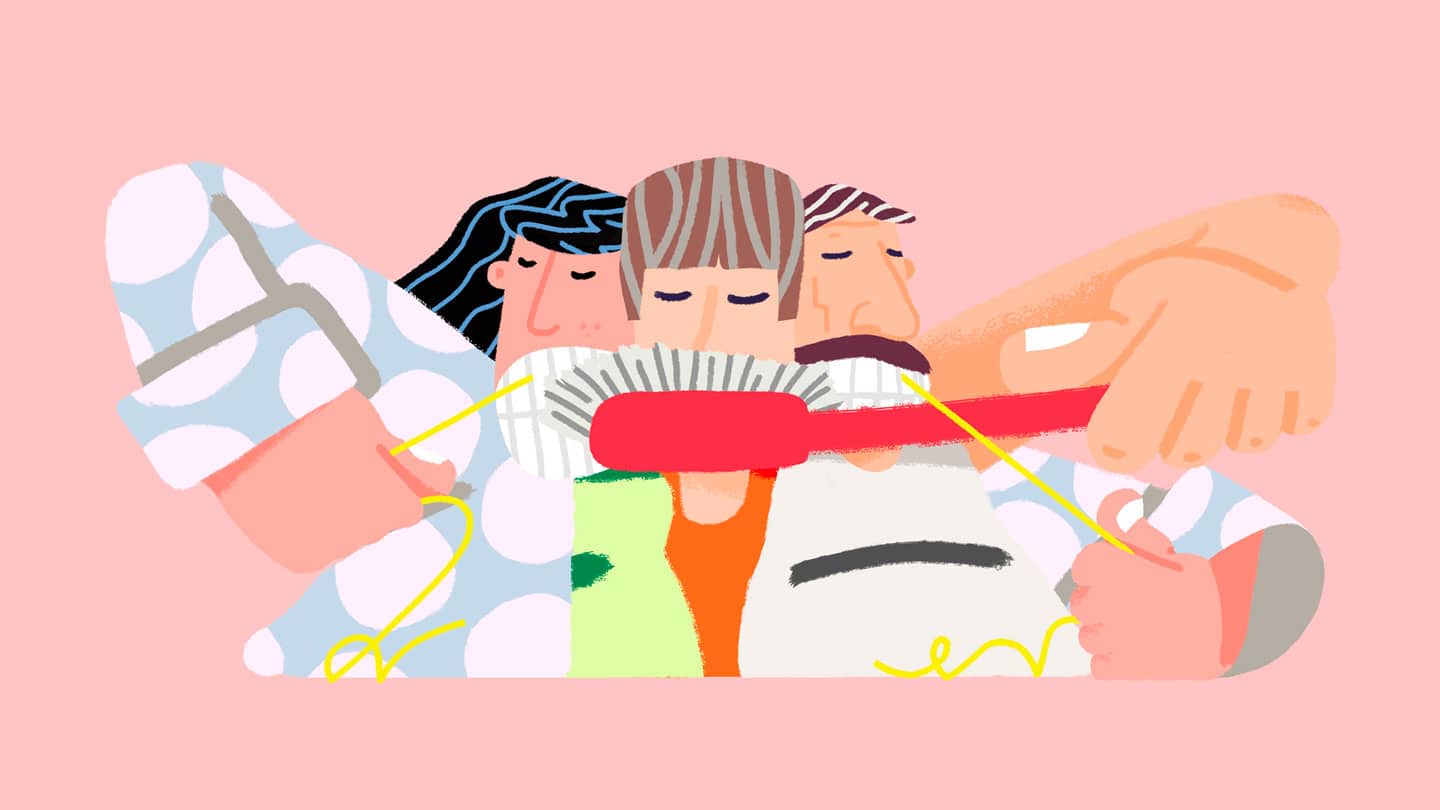Every new parent has dozens of questions about caring for their new baby. And of course dental care is on the list! Do you need to brush your baby’s gums? How can you relieve teething pain? What are the best foods for babies? A closer look at tooth care for babies.
The inside skinny on tooth care for babies
- When it comes to food: breastfeeding is ideal, and should be followed by a balanced diet low in juices and sugary drinks,
- Schedule your baby’s first dental hygienist appointment around their first birthday,
- Thumb sucking is normal, but can deform the jaw if it continues too long,
- Clean your newborn’s gums with a washcloth, then switch to a soft-bristled baby toothbrush as soon as their first tooth pops through.
Is breastfeeding good for babies?
Breast is best! Breastmilk contains all the nutrients your baby needs to grow. Studies have also shown that breastfeeding boosts babies’ immune systems and helps their mouths develop.
But it’s also important to make the right choice for your whole family, including mom.
How do baby teeth develop?
Your child’s twenty baby teeth were mostly formed before they were born.
So at birth, they were already partially or fully formed and calcified under your baby’s gums.
Teething in babies and children
Babies get their first teeth at around six months, sometimes a little earlier and sometimes a few months later. While the teething process is smooth and easy some babies, others have a harder time, with pain, fever, and appetite loss.
Your baby may also cry and experience symptoms like diarrhea, a face rash or diaper rash, or a runny nose.
You’ll also notice that they drool a lot and gnaw on their fist. A teething ring or a cool, wet cloth can offer relief.
You can also gently massage your little one’s gums using a small, very soft toothbrush in a circular motion to stimulate circulation and soften their gums.
And if your baby is really in pain, you can give them acetaminophen (paracetamol).
Warning about teething remedies
- Many teething remedies are ineffective and contain sugar.
- Numbing gels can be dangerous: your baby can swallow them, causing numbness in their throat or disrupting swallowing and digestion.
- Raw carrots and celery are a choking hazard for babies.
Taking care of your baby’s teeth: toothbrushing and gum cleaning
How should you clean your baby’s gums?
You can use a moist washcloth to clean the inside of your baby’s mouth and gently massage their gums to remove any buildup and bacteria.
When do you need to start brushing your baby’s teeth?
As soon as your baby’s first tooth pops through, start brushing twice a day with a soft-bristled toothbrush and a tiny amount of toothpaste (about the size of a grain of rice). Choose kids’ toothpaste with fluoride. And remember to replace their toothbrush as soon as the bristles are bent.
Since bacteria can get stuck deep in the bristles and base of a toothbrush, you will also need to replace it if it might be contaminated, after:
- a high fever,
- a contagious disease,
- use by another child,
- contact with another toothbrush, etc.
What should you feed your baby?
Your baby’s diet will have a major impact on the formation of their permanent teeth, which are already growing under their gums.
Avoid sugary drinks and limit juice – they create an acidic environment that causes cavities.
If your baby needs medicine, we recommend rinsing their mouth and brushing their teeth afterward, since baby medicines are high in sugar.
More information: www.sge-ssn.ch
Thumb sucking
Lots of babies suck their thumbs – it’s completely natural and normal. But it’s important to make sure they stop before their adult teeth come in, to prevent jaw deformation. If thumb sucking is an issue for your family, your dental hygienist can help with advice and solutions.
First dental hygienist appointment
We recommend scheduling baby’s first appointment right around their first birthday, about 6 months after their first tooth comes in. The hygienist will provide recommendations on home tooth care and assess their dental development, risk of cavities, and how often you will need to schedule future visits.
Early childhood cavities
Early childhood cavities are cavities in children under age 5.
They can be caused by:
- not brushing twice a day with fluoride toothpaste,
- a high-sugar diet,
- a sugary bottle given at bedtime,
- genetics – some families are very prone to cavities.
Regularly check the appearance of your child’s tooth enamel by lifting their lips. The first signs of tooth decay can be dull enamel or white, chalky spots. Since early childhood cavities progress fast, you may need to call your dentist.
[widget id=”custom_html-19″]



